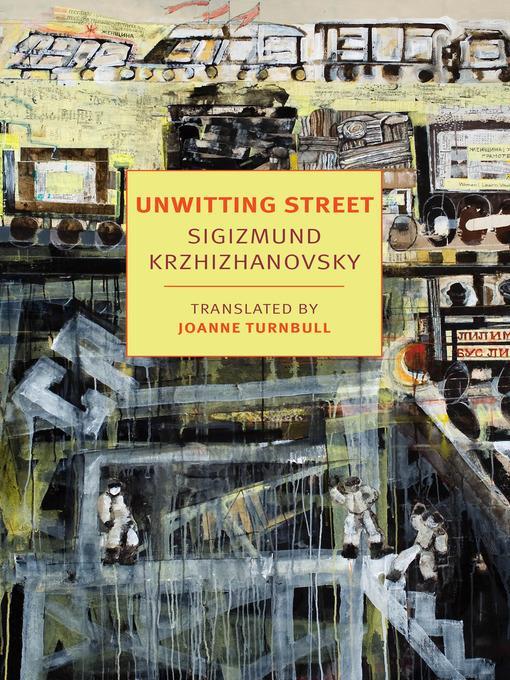
Unwitting Street
کتاب های مرتبط
- اطلاعات
- نقد و بررسی
- دیدگاه کاربران
نقد و بررسی

June 8, 2020
This collection by Polish-Russian-Soviet writer Krzhizhanovsky (1887–1950, The Return of Munchausen) mixes playful and morose tones in stories of the kooky and the condemned. At his most frolicsome, Krzhizhanovsky endows all things with consciousness, from a pair of pants in the amusing “Comrade Punt” to books and letters in “Paper Loses Patience,” in which all the world’s paper goes on strike, demanding that only the truth be printed. But many of these stories are darker, obliquely or directly addressing the changes wrought by the Russian Revolution, including the fates of people considered “superfluous” under the new regime. The newly retired bank cashier in the bittersweet “The Window” turns his apartment window into a replica of his old station at the bank, but the drunk, solitary letter writer in “Unwitting Street” is more fatalistic: “logic demands that I be got rid of.” Even at his gloomiest, Krzhizhanovsky is clever and satirical in his descriptions, writing that “the standard of living has gone up to such an extent, it’s almost at our throats.” Indeed, Krzhizhanovsky is at his best when finding levity in grave revelations; compared to his lively past work in translation, this shows a more somber side. The writer posthumously enjoys quite a few recent converts, and some will appreciate this darker turn.

Starred review from June 15, 2020
In these 18 short stories, written between 1920 and 1940, Russian writer Krzhizhanovsky turns a sardonic eye on history, God, philosophy, the early days of the Soviet Union, and the writer's fate. After the title character dies in "Comrade Punt," his pants continue to perform his office job so well they are given a promotion. In "The Gray Fedora," a nihilistic thought jumps from a man's head into his new hat. When the fedora is mistakenly worn by the wife's lover, it causes his suicide, then floats downriver and continues to infect anyone who puts it on with a feeling of utter pointlessness. In these stories, thoughts and ideas have lives of their own. Literally. ("Only half-inhabited, like a hamlet after the plague, the old man's brain was thinly populated with thought-invalids and thought-pensioners.") In "The Life and Opinions of a Thought," the struggle of putting an idea into words is told from the point of view of a line by Immanuel Kant. In "Paper Loses Patience," the letters of the alphabet stage a rebellion, abandoning their posts in books, in newspapers, on signs. In "God is Dead," Nietzsche's statement is taken literally; the Almighty dies, long after people have stopped believing in Him, in the year 2204, with surprising consequences. Erudite, playful, wry, these stories are concerned with human failure and the failure of language itself: "We all understand each other by syllables...we don't know how to read someone else's feelings, the essence hidden in the word." They are also darkly funny. A parrot that sings "La Marseillaise," subjected to the vicissitudes of war, is described as having "the look of an atheist selling indulgences." In the title story, a narrator who eschews the title of writer sends letters to strangers. "What, you may ask, makes me drink? A sober attitude toward reality." He addresses an unknown fellow insomniac whose window stays lighted throughout the night: "This new socialist property must be carefully and exhaustively studied. I'm doing this as best I can." Krzhizhanovsky died in 1950, his work all but unpublished in his lifetime. We are lucky to have the fruit of his exhaustive study available now; as his letter writer says, "We all live on history's Unwitting Street." These philosophical, melancholic, darkly funny tales merit a place beside those of Kafka, Borges, and Calvino.
COPYRIGHT(2020) Kirkus Reviews, ALL RIGHTS RESERVED.

























دیدگاه کاربران